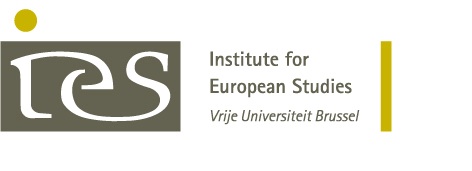 The Institute for European Studies (IES) at the Vrije Universiteit Brussel (VUB) is calling for applications for a full-time doctoral researcher in the European Economic Governance cluster. Prospective PhD candidates are hereby invited to submit project proposals on the general theme of the European economy and its governance. The deadline for submitting applications is 27 May 2016.
The Institute for European Studies (IES) at the Vrije Universiteit Brussel (VUB) is calling for applications for a full-time doctoral researcher in the European Economic Governance cluster. Prospective PhD candidates are hereby invited to submit project proposals on the general theme of the European economy and its governance. The deadline for submitting applications is 27 May 2016.
Project description
The European economy is emerging from the most severe economic crisis in the history of the European Union while it is already facing new challenges in the areas of migration and security. The road to sustained prosperity under these demanding circumstances requires the EU not to lose focus on its mission. At its core, the EU remains an economic integration process, and much remains to be gained on this policy area. The policy fields that we are particularly interested in exploring through this PhD call include the following:
- Competition law as fiscal policy. A central missing part in the economic consolidation of the EU is the absence of a sustainable fiscal policy. The EU is in particular focusing on a crackdown of aggressive tax planning and tax avoidance. Further integration in the field of taxation remains, however, problematic, but competition policy – and state aid in particular – may offer novel ways to proceed in consolidating national practices. Can aggressive tax planning thus be addressed through the lens of fair competition?
- The Single Market Strategy. The Single Market is one of EU’s greatest achievements. First the economic crisis, and now the migration and security crises have, however, diverted policy-makers’ attention away from this core area EU integration. Can the Single Market be revitalised through initiatives such as the Digital Single Market, collaborative economy and circular economy so as to lead to a European Union that is both deeper and fairer, and that regains competitiveness to overcome the crises?
- The EU in Internet governance. The European economy is intrinsically linked to the online environment and relies in many respects on the global internet infrastructure. Economic issues blend with technical and highly political considerations in internet governance. This combination challenges the legitimacy and authority of ‘old’ institutions to control core functions of the system. The EU seeks a facilitative role, aiming for a multi-stakeholder approach that promotes the values of economic efficiency, consumer welfare and democracy. Can the EU reconcile their own interests and values—and those of others—in the development of internet governance institutions?
In line with the inter-disciplinary ethos of our Institute, we advocate proposals that are able to combine economics, political science, law and other (social) sciences in innovative ways.
In terms of theoretical/methodological approaches, we encourage applications that contribute to our on-going research work on governance and the reconciliation of economic and non-economic values, and thereby critically review the evolution and potential of EU policies. The proposal should be situated in the IES research strategy that focuses on the EU in an international context, for example by including a comparative angle with trading partners or by analysing the effects of EU policies beyond its borders.
Profile
Successful applicant must
• hold a Master’s Degree with excellent study results in social sciences (including law), humanities or economics
• be fluent in English
• be open to inter-disciplinary research and have excellent analytical skills
• have a thorough knowledge of European Union law, policy and/or economics, in particular in the field in question.
Offer
We offer employment as a full time doctoral researcher.
Contract: full-time research grant for one year, renewable on an annual basis for a maximum of four years. Extension of the contract is subject to the agreement of the doctoral committee. Remuneration is at the level of a full-time research assistant at a Flemish university (i.e. approximately € 1.900 net per month) and includes contributions for social security. Secondary employment is not allowed.
The IES requires that at least a (co)promoter of the project be from the IES. The IES assists successful candidates in finding a suitable (co-)promoter at the VUB. Co-promotership from other Belgian or foreign universities is encouraged. Successful candidates are expected to base themselves in Brussels to work at the IES premises. Office space and equipment will be provided along with a budget for travelling and other research-related expenses.
The PhD researcher will be expected to devote the majority of his/her time to research, with contribution expected for occasional teaching activities, to event organisation and to the overall development of the institute. The researcher will prepare papers, attend conferences and produce research publications as she/he carries out the PhD.
The IES is committed to creating and supporting a diverse work environment and is an equal opportunity employer.
